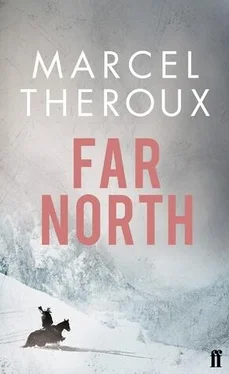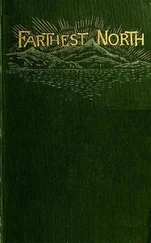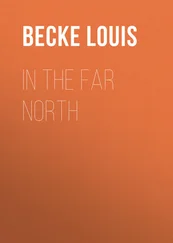*
I took a sliver of blackened wing from the wreckage and made a keepsake out of it, working it into a tiny cross and wearing it on a string round my neck. From the depth of my sadness about Ping arose a new hope in the shape of that plane.
The more I thought of it, the more it seemed right: out had gone the plane, from one of the sister cities, or some scratched-out dirt airstrip on the Bering Sea. There would be some broken hearts when it didn’t return. I knew how that felt: days spent waiting for a key to turn in the front door, or to hear a familiar voice in the courtyard. But these ones weren’t coming back. And when they didn’t, what then? Would they send another plane? Did they have one?
Whatever their loss, I reasoned that any place with the know-how to put together and fly a plane was in better shape than I was. I imagined even their grieving would have an orderliness to it.
*
Right here in front of me is the world of the real. The pencil in my hand. The old exercise books I’m filling. The plumblack pinch on my thumbnail I put there hanging a birdfeeder. The backs of my hands, more wrinkled-looking than they were the last time I checked. I see it pretty clearly, because I don’t need things to be otherwise. Just like when I’m tracking game, I don’t go after what I hope to find, but only what’s there.
But when it came to that plane, and the lives I imagined behind it, I let go of my reason too. Everything I needed to believe about the world came between me and a clear sight of reality. I clung onto the few facts that fit with my preferred way of looking at things, and the rest I kicked under the rug.
Careening out of my grief in any case, I wasn’t in my right wits. A kind of frenzy took hold of me. The world, which had seemed so desolate after Ping’s death, now seemed so full of possibilities that I was fidgety with hope and couldn’t sleep. After so many years in the Far North, I should have recognized the signs. The arctic year is nine months of cold and three of living hell-for-leather. Grief and the change from the long dark months of winter could bounce anyone into lunacy.
*
It took the best part of a month to get back to town and close up the house to my satisfaction.
I shuttered every window and barred them across the inside with wooden braces. I fastened the door with three different locks and buried the keys in a waxed bag at the foot of the pear tree in the garden. My father had grown it from a cutting he brought with him at the time of the first settlement from America. It grew small and stunted, like the willow in the tundra, but it grew all the same. And once in a while it fruited — tiny, thick-skinned pears, that appeared so rarely they seemed more like talismans than food. Try as he might, my father was never able to coax more than a couple of fruits a year off that spindly tree: he cropped it, fertilized its roots with potash, dabbed pollen from flower to flower with a paintbrush. But if he was disappointed that his hard work yielded such meagre harvests, year after year, he never showed it.
As I buried the keys, it crossed my mind that I might never be coming back, but my zeal for the journey, and the twisted hold I’d got on the facts, turned what might have been a sober and thoughtful farewell into a breathless dash for the exit. I practically galloped out of there, with the second horse in tow. It was certainly stimulating, after all those years of caution, to rip out onto the highway.
That brought me to my senses a little. I’d never once travelled that long straight road alone. Its condition was good enough to surprise me. The gravel was well laid and pretty flat. What I hadn’t expected was how I’d feel standing above the weird straight flatness of it, running from horizon to horizon. The paleness of the gravel and the bend in the earth made it seem like the road floated slightly above the ground. It seemed to roll on for ever, forward and back, and not a soul to be seen either this way or that. And the next settler city lay two hundred miles to the east.
*
The laid roads here were built not by machine, but by the gangs of slave-workers who were sent by the commissars.
Millions died here: starved or frozenworked to death in mines, shot by the guards for trying to escape, shot by the Tungus when they had escaped, killed and eaten when whoever they escaped with had run out of food. Numberless dead. You can look up on an August evening and see the sky throbbing with mosquitoes. Imagine every one with a man’s head, and it’s still too few.
You wonder if the land itself ever forgets a curse like that.
There’s an old prison factory at Buktygachak that I visited on horseback as a little girl.
Buktygachak: even the name has the air of no good about it. The main factory building was still standing, and a block of punishment cells. In summer, the tall grass and the warmth took the sting out of it, but the Tungus guide who took us there slapped the water out of my hand when I filled my canteen from a stream and told me it would make me sick.
He said so much blood had soaked into the land, the stream was undrinkable. I didn’t know why he was trying to scare me. The Tungus were superstitious about everything.
My pa let his horse drink, but he didn’t touch it himself. Later he said the prisoners had been digging uranium ore for power stations and bombs and the radiation had leached back underground. I imagined the taste of the water, furring my tongue with iron, or maybe reeking slightly of sulphur, and I felt my stomach turn.
The truth is that not many people besides us have ever chosen to live here. The Tungus wound up here centuries ago, starting off in Mongolia in colder times and then following the reindeer north. Then some came out from the west, following the fur. Most of the rest were prisoners and exiles. People had to be bribed into coming east, with big wages for working in the mines and wells. And once they had done their time, they usually went home. You could imagine them waking up again in apartments back wherever they had come from, with the noise of an old city around them, and their money in the bank, and this strange, cold, bloodstained empty land just a memory.
But we settled here out of conviction, as a handful of people had done in the past, because the land was empty and our parents wanted the freedom to create their world new. What an old story that is. You’d think people would be done believing in a fresh start by now, in thinking they can escape their own nature. The proof of it was all around us at Buktygachak: the slave armies that had been building a new dawn, the grim chimney stacks. But no, the godless commissars had had the wrong idea and we had the right one. This time the bright new future was really just around the corner, and with god on our side and a collective determination to do good, we’d put a bunch of New Jerusalems right here in the frozen north. What hooey.
This world is a scaly old snake. She is a cunning old woman, and I’m growing to be a cunning old woman, and the last human being that draws a breath on this planet will be a cunning old woman, who raises chickens and cabbages, has no illusions, and has outlived all her children. The world is not sentimental, but pitiless. I’ve given it to myself to know her mind. I flatter myself that I understand her a little. Maybe I’ve grown to resemble her. Only she’s going to go on for ever, and I won’t.
*
So it was getting close to October and I was travelling again. It always feels good to move, and this time I had a dose of hope in my soul.
Every now and again along the highway, I’d pass a tree tied with faded strips of cloth, glass beads and old coins round its base. That was a Tungus custom. Some trees and places are holy to them.
And back in the old days, when there was real traffic on this road, before people piled into their creaky buses for their long jarring drives, they’d fix swatches of fabric and drop pennies here for a safe return. Strange what survives of us. Beads, a random footprint, some papers. How would anyone make sense of it?
Читать дальше












